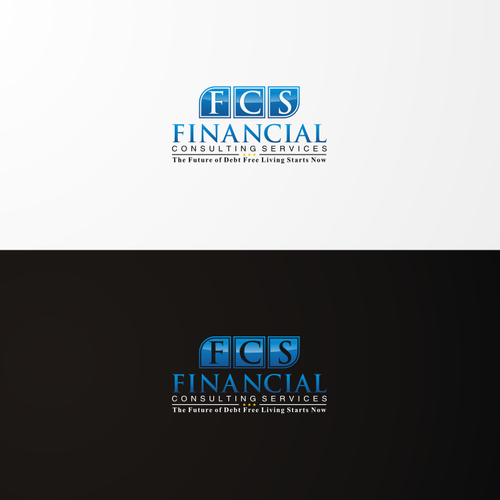
You should take into account several things when selecting an investment advisor. You will learn about fiduciary responsibility, conflicts, hourly rates, retainer fees, and Fiduciary liability. Make sure you choose an investment advisor who complies with these regulations. Your advisor must be registered with either the Securities and Exchange Commission (SEC), or the state securities agencies.
Fiduciary responsibility
Fiduciary duty requires that investment advisors act in the best interests of their clients and disclose material facts in order to avoid conflicts. Fiduciary breach can lead to civil and financial liability. Excessive trading, improper margin trading and false representations regarding securities are all examples of violations of fiduciary obligation.
Fiduciary duties require investment advisors to act in clients' best interests and keep their clients' interests at the forefront. This means they have to make sure that the advice they offer is in line with the client’s goals. To do this, advisors need to have enough information about the customer's finances. Fiduciaries decide what is in a client's best interest, and then they discuss it with the customer.
Conflicts of interests
Investment advisors must disclose potential conflicts to clients. The disclosure must detail the nature of the conflict and the management. It also should include how the adviser will mitigate it. It must be disclosed at each stage of an investor's investment recommendation. It depends on the particular circumstances between the advisers and the client as to whether there is a conflict.

A conflict of interests is when the financial interests and client of an investment advisor do not coincide. An example of this is when an investment professional may have a financial incentive for a client to buy a certain security. When an investor buys this security, the advisor receives a commission from the introducing broker. Advisors will be more inclined to find the best investments, as they will receive the highest commissions.
Hourly rates
Investment advisors can charge hourly rates, flat fees, or other arrangements for the time they spend with their clients. These fees are often disclosed upfront. Before paying, clients should request to see the invoice. Hourly rates vary depending on the advisor's experience and specialty. More experienced advisors charge more.
Firms that offer investment advice often use the hourly pricing model. When the service is one-time, the hourly fee is affordable. If you require ongoing management, a flat fee or a percentage may be better.
Retainer fees
Although commission-based advisors are attractive for their low cost, they may not be the right choice for every client. Such advisors are salespeople, and they earn commissions on sales of clients' financial product. These products may include mutual funds, stocks, or insurance. Retainer-based Advisors are less expensive and more transparent than commission-based ones.
Retainer-based financial advice is a great way to avoid conflicts of interests. The advisor gets paid 1% to 2% of the portfolio's total value. The advisor would make $5,000 to $10,000 per annum if the client had a $500,000 portfolio. This type of arrangement can be costly and may create conflict of interests. In addition, some retainer-based financial planners earn ancillary income from the implementation of the client's investment plan.

Choosing an investment advisor
Choosing an investment advisor is one of the most important financial decisions you can make. It is crucial to find an investment advisor that is registered and accredited. Has a proven track record and offers advice. A member of the Investment Industry Regulatory Organization of Canada is a must. This organization regulates all Canadian investment dealers and monitors compliance.
There are many different types. Your specific goals will determine which advisor is best for you. Although past success doesn't guarantee future results a solid relationship with an advisor can help build trust and honesty. Look for someone who is open with their clients and communicates with them regularly.
FAQ
What is the difference between consulting and freelancing?
Freelancers are self-employed individuals who offer their services to clients without employees of a company or agency. Hourly rates are usually charged based on the time they spend working on a client’s project. Consultants are usually employed by companies or agencies. Their salaries are often paid monthly, or annually.
Because they have control over their work hours and can set their prices, freelancers are more flexible than consultants. Consultants often offer better benefits such as vacation days and retirement plans, health insurance, and vacation days.
Do I have to pay tax on consulting income
Yes. You will have to pay taxes on your consulting profits. The amount of your earnings per year will determine the tax payable.
If you're self employed, you can deduct expenses beyond your salary.
But you won't be able to deduct interest payments on loans, vehicle depreciation, or the cost of equipment.
You cannot claim back less than PS10,000 in a given year.
However, you might still have to pay tax if your earnings are higher than the threshold. This depends on whether you are an employee or contractor.
Employers are taxed via PAYE (pay as your earn), and contractors through VAT.
Which industries use consultants?
There are many different types. Some focus on one particular type of business while others specialize in more than one area.
Some consultants are only available to private companies while others work with large corporations.
And some consultants work internationally, helping companies all over the world.
Statistics
- "From there, I told them my rates were going up 25%, this is the new hourly rate, and every single one of them said 'done, fine.' (nerdwallet.com)
- Over 50% of consultants get their first consulting client through a referral from their network. (consultingsuccess.com)
- 67% of consultants start their consulting businesses after quitting their jobs, while 33% start while they're still at their jobs. (consultingsuccess.com)
- According to IBISWorld, revenues in the consulting industry will exceed $261 billion in 2020. (nerdwallet.com)
- My 10 years of experience and 6-step program have helped over 20 clients boost their sales by an average of 33% in 6 months. (consultingsuccess.com)
External Links
How To
How can I start my own consulting business?
You can easily start your own consultancy business with no capital investment.
You'll learn how you can make money online, increase your skills, earn more cash and be successful.
These secrets will help you generate traffic on demand. This is especially important when people are looking for something specific.
This method is known as "Targeted Traffic". This method was specifically designed to make it possible to accomplish such things...
-
You should choose the niche you wish to work in.
-
Find out which keywords are used by people to search for solutions on Google.
-
These keywords can be used in content.
-
Post your articles on article directories.
-
Use social media sites to promote your articles.
-
Build relationships with influencers and experts in that niche.
-
Be featured on these blogs and websites.
-
Grow your email list by sending out emails.
-
Start making money.